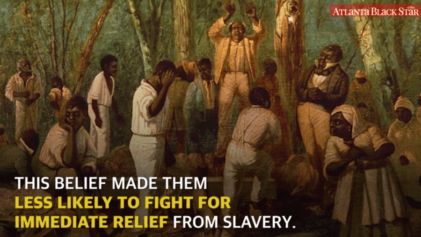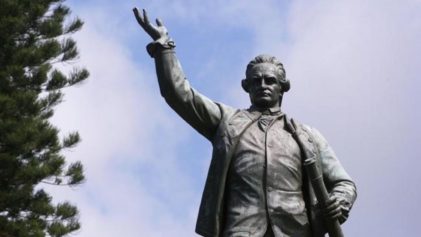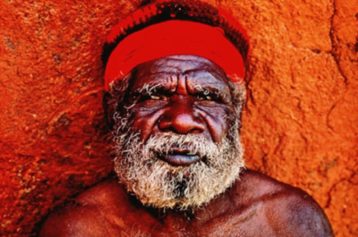Evangelical Christian missionaries in Brazil are accused of bribing indigenous peoples, offering food and clothing if they convert to Christianity, as Vocativ reported in a video. The missionaries are actively involved with indigenous communities to change their traditions and belief systems, and ultimately undermine their culture. The Christians call the native religions “Satanism,” while poor local communities claim they were coerced into converting. While the Brazilian Constitution guarantees that indigenous people have a right to their beliefs, but Vocativ noted, ultimately it cannot protect them.
Evangelical missionaries have accused Amazonian Indians of a widespread practice of infanticide against babies with birth defects, which government officials have argued is exaggerated and an attempt to convert people to Christianity and destroy their civilization. The Brazilian Department of Indian Affairs has also accused missionaries of enslaving Indians and covering up their efforts to evangelize. Indigenous rights groups also accuse missionaries of bribing tribes with tools and medicine as a proselytizing tool, removing Indian children from their homes and illegally taking blood samples. Activists call the evangelists’ accusations racist in portraying indigenous communities as savages, a distraction at a time when Indian tribes are being killed by ranchers and forced from their land.
Bribery and coerced conversion are part of a larger issue of the longstanding exploitation of indigenous people, their culture and their land. The Brazilian government recognizes indigenous people and their right to live in their traditional lands based on their own lifestyle and is responsible for demarcating indigenous land and providing bilingual education and healthcare in accordance with indigenous culture. The Constitution of 1988 recognized indigenous people as the first people of Brazil with original rights to their land, rights that precede the state of Brazil, and abandoned the assimilationist view that indigenous communities are in transition and destined to disappear. However, as WWF notes, the government has failed to provide the necessary resources to these communities, whose ancient people face difficulties, such as threats and encroachments from development, highway construction, and mining.
The government of Michel Temer — which came to power upon the impeachment of progressive President Dilma Rousseff, in what has been called a coup of white male conservative elites — has been accused of blocking the titling of indigenous ancestral territory. Agribusiness in particular and rural elites aligned with Temer oppose native land rights and have made headway in a country that has been known as a leader in indigenous land rights. In what was hailed as a victory for indigenous groups and their constitutional right to tribal ownership of land, in 2017 the Brazilian Supreme Court ruled in a land dispute against the western state of Mato Grosso, which had sought compensation for land that had been designated as tribal reserves.
As David Hill argued in The Guardian, people should leave isolated tribes alone, including those religious groups who hope to evangelize the “unreached,” as initiating “controlled contact” with these people is an effort to control them, and violates their rights and threatens their lives. “Along with oil and gas companies, missionaries and priests arguably pose the biggest threat to forcing contact with indigenous peoples in isolation in Peru,” he said, noting allegations that the oil giant Shell, loggers and missionaries formed an “alliance” to contact the Nahua people in Peru.
Christianity has a long history of exploiting indigenous populations and using religion as a weapon of conquest, giving Black and Brown people the Bible while they stole the land. In Africa and elsewhere, Christian missionaries were agents of imperialism, whose role was to soften up indigenous people for conquest and Westernization, with the spread of Christianity going hand in hand with the economic and political power of the white nations. The Catholic Church created the basis for colonial oppression of nonwhite populations with three edicts: The Dum Diversas, issued by Pope Nicholas V in 1452, paved the way for the West African slave trade by authorizing King Alfonso V of Portugal to reduce any “Saracens (Muslims) and pagans and any other unbelievers” to perpetual slavery. In 1455, Pope Nicholas V also issued the Romanus Pontifex, which gave white nations the green light to seize all non-Christian land, to “invade, search out, capture, vanquish, and subdue all Saracens and pagans whatsoever, and other enemies of Christ wheresoever placed.” In 1493, Pope Alexander VI issued the Inter Caetera, which paved the way for missionaries and colonization in the New World, “to instruct the aforesaid inhabitants and residents and dwellers therein in the Catholic faith, and train them in good morals.”
In the British empire, in India, Asia, Africa and the Pacific, missionaries could be viewed either as advocates for the rights of indigenous Christians, or part of the plot for colonial control. The converted walked a fine line negotiating the needs of the colonizer and that of their own indigenous people. In some cases, Black missionaries were more effective than their white counterparts and their racist views. Missionaries used food as an assimilation strategy to “civilize” and Christianize Black Australian Aborigines, who came to missions on their own or by force, with the shortage of food as a motivating factor. Missionaries were able to change the Aboriginal way of life and undermine their society by dictating their diet and food practices, including the types of food the people ate, and how they obtained, prepared and shared food. In one mission, food rations were doled out to reward good behavior and hard work, and used as a form of currency.
Missionaries of the Russian Orthodox Church baptized thousands of indigenous people in Siberia. While Peter the Great told missionaries in 1702 to kill those who resisted, in reality the local people were bribed with gifts such as a few pounds of tobacco and liquor, or temporarily relieved of their obligation to pay yasak, their tribute to the czar.
In today’s world, bribery of the so-called nonbelievers with food and other items continues, even to the point where some missionaries in poor countries employ fake healing tricks and pretend to work miracles. One religious observer attributes the use of handouts and bribes by missionaries to the lack of a “comprehensive Biblical worldview,” which “forces missionaries to find other ways to bring people to Christ” to “fill the gap,” including “substitutes based on false values” that are corrupt in nature.


